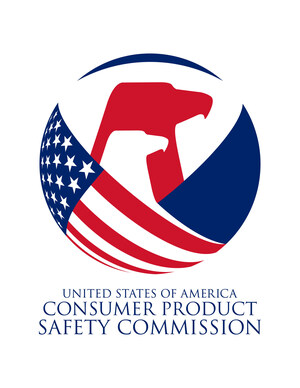
Replace Smoke & CO Alarm Batteries This Sunday for Daylight Saving Time
WASHINGTON, March 11, 2011 /PRNewswire-USNewswire/ -- On Sunday, March 13, consumers across the country will change their clocks for daylight saving time. With this week being National Consumer Protection Week, the U.S. Consumer Product Safety Commission (CPSC) is urging consumers to use this opportunity also to change the batteries in their smoke and carbon monoxide (CO) alarms.
(Logo: http://photos.prnewswire.com/prnh/20030904/USCSCLOGO)
"Smoke and CO alarms add layers of lifesaving protection for families and homes from the dangers posed by fire and carbon monoxide," said CPSC Chairman Inez Tenenbaum. "Changing the batteries and testing your smoke and CO alarms to ensure they are working, when you change your clocks, is a great way to ensure alarms are operable and families are fully protected in the event of an emergency."
An estimated annual average of 385,100 fires, 2,470 deaths, 12,600 injuries and $6.43 billion in property losses associated with residential fires was reported by fire departments from 2005 through 2007. Of the reported incidents, common household products, such as cooking, heating, and cooling equipment accounted for the largest percentage of fires.
Carbon monoxide is an odorless, colorless, poisonous gas that consumers cannot see or smell. On average, there were an estimated 184 unintentional, non-fire CO poisoning deaths annually associated with consumer products from 2004 through 2007. Carbon monoxide associated with generators and home heating systems accounted for the largest percentage of reported fatalities. CO and smoke alarms should be tested monthly. CPSC recommends that consumers replace the batteries in their smoke and CO alarms every year. Smoke alarms should be located on every level of the home, outside sleeping areas, and inside each bedroom. Each home should have at least one carbon monoxide detector in the area outside individual bedrooms. CO alarms should not be installed in attics or basements unless they include a sleeping area. Combination smoke and CO alarms are available to consumers.
CPSC recommends consumers follow these safety tips to prevent fires and CO poisoning from occurring in the home:
FIRES
- Never leave cooking equipment unattended.
- Use caution with candles, lighters, matches and smoking materials near upholstered furniture, mattresses, and bedding. Keep matches and lighters out of reach of children.
- Have a fire escape plan and practice it, so that family members know what to do and where to meet if there is a fire in the home. Children and the elderly may sleep through or not react to the sound of a smoke alarm; therefore, parents and caregivers should adjust their fire escape plan to help children and the elderly escape from the house in the event of a fire.
CO POISONING
- Have a professional inspect home heating, cooling, and water-heating appliances annually. Improperly operating appliances can produce fatal CO concentrations in the home.
- Never ignore a CO alarm signal. It is warning you of a potentially deadly hazard. If the alarm signal sounds, do NOT try to find the source of the CO. Immediately move outside to fresh air. Call your emergency services, fire department, or 911.
- Never use a portable generator indoors—including in garages, basements, crawlspaces and sheds. Opening doors and windows or using fans will NOT prevent CO build up in the home.
- When using portable generators, keep them outdoors and far away from open doors, windows, and vents to avoid toxic levels of CO from building up indoors.
- If you start to feel sick, dizzy, or weak while using a generator, get to fresh air right away. The CO from generators can quickly lead to full incapacitation and death.
- Never burn charcoal indoors. Burning charcoal in an enclosed space can produce lethal levels of carbon monoxide.
For more information, visit www.FireSafety.gov for fire safety information from CPSC and other federal agencies.
The U.S. Consumer Product Safety Commission is charged with protecting the public from unreasonable risks of serious injury or death from thousands of types of consumer products under the agency's jurisdiction. The CPSC is committed to protecting consumers and families from products that pose a fire, electrical, chemical, or mechanical hazard. The CPSC's work to ensure the safety of consumer products - such as toys, cribs, power tools, cigarette lighters, and household chemicals - contributed significantly to the decline in the rate of deaths and injuries associated with consumer products over the past 30 years.
To report a dangerous product or a product-related injury, call CPSC's hotline at (800) 638-2772 or CPSC's teletypewriter at (800) 638-8270, or visit CPSC's web site at www.cpsc.gov/talk.html. To join a CPSC email subscription list, please go to https://www.cpsc.gov/cpsclist.aspx. Consumers can obtain this release and recall information at CPSC's Web site at www.cpsc.gov.
CPSC Recall Hotline: (800) 638-2772 |
|
CPSC Media Contact: (301) 504-7908 |
|
SOURCE U.S. Consumer Product Safety Commission





Share this article